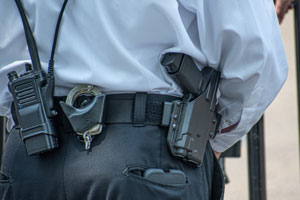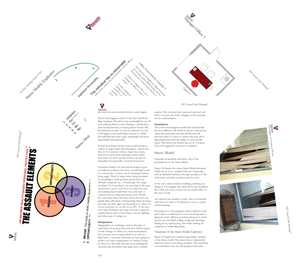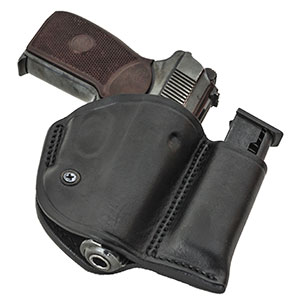
California BSIS Security Guard Permit for Exposed Firearms Training
Superior Training at Affordable Prices
Exposed Firearms Permit Application Order
As of January 1, 2022, the new Exposed Firearms Permit application order is:
- Complete 16pf Assessment.
BSIS FIREARMS PERMIT - ASSESSMENT REQUIREMENT FOR SECURITY GUARDS - Complete Exposed Firearm Permit training.
- Submit and pay application fees.
- Complete Live Scan.
- Permit issued.
Transporting a Firearm in California (link)
Information Regarding the Assignment of Firearms to Licensed Security Guards by Private Patrol Operators (link)
Facilities
Burbank
Firing-Line Indoor Shooting Range, Burbank
Security Training Center®
1060 North Lake Street
Burbank, CA 91502
TFF 1615
(855) 979-9001
Huntington Beach
Firing-Line Indoor Shooting Range, Huntington Beach
Security Training Center®
17921 Jamestown Ln, Suite 101
Huntington Beach, CA 92647-7138
TFF 1616
(855) 979-9001
Upland
Security Training Center®280 N. Benson Ave, Suite 8
Upland, CA 91786
TFF 1617
(909) 579-0777
Prices
Back to top- Ammunition is NOT INCLUDED in course price.
| Permit for Exposed Firearm and Requalifications | Price |
|---|---|
| Firearms course, initial, 1 caliber | $140.00 |
| Firearms course, initial, 2 calibers | $180.00 |
| Firearms course, initial, 3 calibers | $220.00 | Requalification, 1 caliber | $40.00 |
| Each additional requalification per caliber | $20.00 |
Free gun rental with purchase of range ammo.
Additional gun rental costs for calibers other than 9mm or .40.
Overview
The California Private Security Industry is governed by laws enacted by the California Legislature and contained in the California Business and Professions Code. These laws are known as the Proprietary Security Services Act and the Private Security Services Act and can be found at www.bsis.ca.gov.
To provide for and protect public safety, the Legislature included laws to make sure that armed Security Guards obtain a minimum level of training on the carrying and use of a firearm.
To obtain a Firearm Qualification, while working as a security guard, the Bureau of Security and Investigative Services has developed a specific course for training on the moral and legal aspects of carrying a firearm, de-escalation of potentially violent situations, knowledge of and maintaining the parts of a firearm, how to handle a weapon and actual experience of firing a weapon.
Specifically, California law requires that a Firearms Training Facility and the Firearms Instructor both be licensed by the Department of Consumer Affairs, Bureau of Security and Investigative Services. The course that is to be taught includes a minimum of 8 hours of classroom training and as many hours as needed range training.
The BSIS requires students to provide proof of citizenship or legal residency prior to course participation!
The firearm training course is designed to teach students basic technical aspects and legal responsibilities inherent in carrying and using a firearm. Knowing how and when to use a firearm are equally important. Knowing how to use the firearm may save your life. Knowing when to use the firearm may keep you from being criminally prosecuted and going to jail.
BSIS Permit for Exposed Firearm Fees
Back to topBSIS License Fees
| Firearms Permit (FQ) | Fee |
|---|---|
| Initial | $100 |
| Renewal | $118 |
| Replacement Certificate | $25 |
| Firearms Assessment (16pf) Paid directly to PSI Services, LLC (PSI) |
$60 |
Live Scan Fees (Background Check) for Exposed Firearm Permit
Applicants must submit fingerprints electronically using Live Scan. Fees are paid to the Live Scan operator.
| Item | Fee |
|---|---|
| Department of Justice (DOJ) Fingerprint Fee | $32.00 |
| Federal Bureau of Investigation (FBI) Fingerprint Fee | $17.00 |
| Firearm Eligibility Application Fee | $38.00 |
| Live Scan Operator Fees (set by Live Scan operator) |
Variable |
| Total | $87.00+Variable |
Permit for Exposed Firearm Application
Back to topTo apply for a firearm permit, applicants must:
- Be at least 21-years of age.
- Hold a Security Guard Registration Card (guard card) or show proof of completion of the Part 1 training.
- Complete a 14-hour course (8 hours classroom, 6 hours range) in the carrying and use of firearms given by a Bureau-certified firearms training instructor at a Bureau certified training facility.
- Pass the written and range exams given at the end of the course.
- Pass the Sixteen Personality Factor Questionnaire (16pf) Assessment.
- Be a United States citizen or have permanent legal alien status; and
- Submit a firearm permit application, pay the application fee, and submit a Live Scan form (which is appropriate to your license or registration) signed by the Live Scan site operator.
Renewals
Back to topFirearm permits expire two years from the date of issuance. An applicant must requalify four (4) times during the life of the permit: twice (2) during the first year after the date of issuance, and twice (2) during the second year. Requalifications must be at least four (4) months apart. The application for renewal should be submitted to the Bureau within 60 days before the expiration date. The current fee for renewing a firearm permit is $98. You may not renew your permit once you have allowed it to expire. You must instead apply for a new permit.
Failure to complete the twice-a-year course review and range requalification may result in the Bureau denying the application to renew a firearm permit at the expiration of the two-year permit. If the Bureau denies an application for a renewal of a firearm permit, the applicant must re-apply as an initial applicant for a new firearm permit. As a result, the applicant may not carry a firearm on duty until the Bureau issues a new firearm permit.
Firearms Qualification Schedule (link)
In Order to Carry An Exposed Firearm While On Duty
Back to top- SECURITY GUARD MUST POSSESS BOTH A VALID SECURITY GUARD REGISTRATION AND A VALID FIREARM PERMIT.
- AN ALARM AGENT MUST POSSESS BOTH A VALID ALARM AGENT REGISTRATION AND A VALID FIREARM PERMIT.
- A PRIVATE INVESTIGATOR MUST HAVE PASSED THE PRIVATE INVESTIGATOR EXAMINATION, POSSESS BOTH A VALID PRIVATE INVESTIGATOR LICENSE AND A VALID FIREARM PERMIT.
- A PRIVATE PATROL OPERATOR MUST HAVE PASSED THE PRIVATE PATROL OPERATOR EXAMINATION AND POSSESS BOTH A VALID PRIVATE PATROL OPERATOR LICENSE AND A VALID FIREARM PERMIT.
- AN ALARM COMPANY OPERATOR MUST HAVE PASSED THE ALARM COMPANY OPERATOR EXAMINATION AND POSSESS BOTH A VALID ALARM COMPANY QUALIFIED MANAGER LICENSE AND A VALID FIREARM PERMIT.
- You may not carry a gun on duty without having been issued a Permit for Exposed Firearm by the Bureau.
- A Permit for Exposed Firearm issued by the Bureau does not authorize you to carry a concealed weapon.
- You may not carry a concealed weapon on duty without a Concealed Weapons Permit (CCW) issued by local authorities, nor carry a caliber handgun not listed on your firearm permit.
- A CCW alone does not authorize you to carry a firearm while on duty.
Permit for Exposed Firearm Restrictions
Back to top- Although students have paid the firearm course fees, successful completion of the course is not guaranteed. Students must establish to the instructor's satisfaction that they are proficient in the handling of the weapon and in meeting course requirements.
Peace Officers
Back to topSection 3: Active Duty Law Enforcement Officer Disclosure - As of January 1, 1997, California Business and Professions Code sections 7522 and 7582.2 (Stats. of 1996, ch. 710; SB 1375), require active duty peace officers who perform the duties of an armed private security officer, armed private investigator, armed private patrol operator, or armed alarm company operator or agent to maintain a qualifying license/registration and a firearm permit. If you are an active duty peace officer as defined in Chapter 4.5, (commencing with section 830) of Title 3 of Part 2 of the Penal Code, and are currently authorized by your employing agency to carry a firearm, you are exempt from completing a firearm training course but will be required to submit proof of active duty status before issuance of a firearm permit.
Felons, Prohibited Misdemeanors, and Domestic Violence Prohibitions
Back to topFirearm permits are not issued by the Bureau of Security and Investigative Services (BSIS) to a person who has been convicted of a felony or a misdemeanor that prohibits the person from carrying or possessing a firearm.
Specifically, the Bureau SHALL NOT issue a firearm permit to: A convicted felon (Business and Professions Code Section 7583.23(d); Penal Code Sections 12021 and 12021.1); to a person convicted of a misdemeanor who is prohibited from possession of a firearm for a period of 10 years (Penal Code Section 12021(c)(1)); nor to an individual with a history of domestic violence or who is subject to a Temporary Restraining Order (a TRO) - (Penal Code Section 12028.5)
Students may also be denied a firearm permit if they have been convicted of a crime of violence, such as assault, battery, assault with a deadly weapon, or a weapons violations, such as brandishing a weapon, illegal possession of and/or discharge of a weapon or carrying a concealed weapon without a concealed weapon permit.
Proof of U.S. Citizenship or Permanent U.S. Resident Status
Back to topSTUDENTS MUST PROVIDE PROOF OF CITIZENSHIP OR LEGAL RESIDENCY PRIOR TO COURSE PARTICIPATION. (BSIS Firearms Training Manual, Page 20)
Bureau-certified Firearm Training Facilities/Instructors are required to verify the U.S. citizenship or permanent U.S. residency status of any individual seeking firearm training, for the purpose of obtaining or renewing a Bureau Firearm Permit, prior to offering the firearms training course. This information can also be found in Attachment 1 of the Bureau-issued Firearms Training Manual.
Any initial or renewal Firearm Permit Application submitted to the Bureau without this required information will be sent back to the applicant with instructions to return the form to the instructor who completed the applicant's firearm training.
DOCUMENTS ACCEPTABLE AS EVIDENCE OF U.S. CITIZENSHIP OR U.S. PERMANENT RESIDENT STATUS:
- Permanent Resident Card [green card] (INS Form I-551, a revised edition of INS Form I-151).
This card must contain a photograph of the bearer. - Certificate of Naturalization (INS Form N-550 or N-570).
This certificate must contain a photograph of the bearer with a dry seal over the photograph. - United States Citizen Identification Card (INS Form I-197).
INS no longer issues these cards, however, once issued, they do not expire. Must contain photo & physical description. - Identification Card for use of Resident Citizen in the United States (INS Form I-179).
INS stopped issuing this card after 1977; however, once issued, they do not expire. - Certificate of United States Citizenship (INS Form N-560 or N-561).
- Certificate of Birth abroad issued by the Department of State (Form FS-545 or form DS-1350).
- Native American Tribal documents.
- United States Military ID card or DD214, Geneva Convention Identification card for Active Military Person.
- Report of Separation [military discharge] (Form DD-214).
- Birth Certificate showing birth in the United States, American Samoa, District of Columbia, Guam, Northern Mariana Islands, Puerto Rico, Swains Island, or United States Virgin Islands.
- United States Passport Book (unexpired) or United States Passport Card (unexpired).
- Permit to Re-enter the United States (INS Form I-327).
- Refugee or parolee documents only if accompanied by INS Form AR-3a, or I-551.
Information provided on this site is educational. It is not legal advice. Training does not guarantee licensing or employment.





